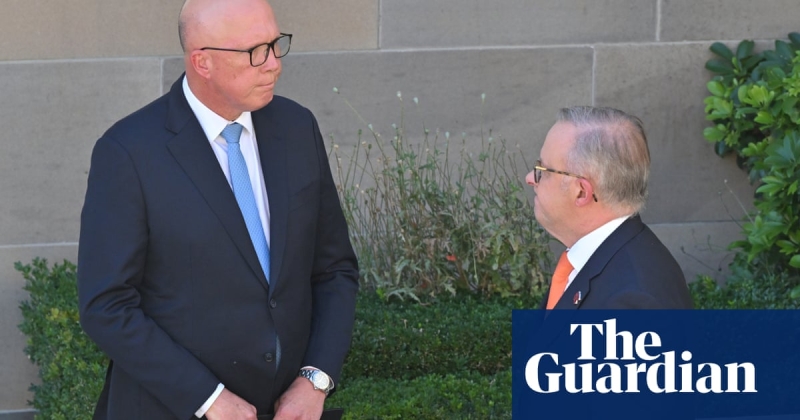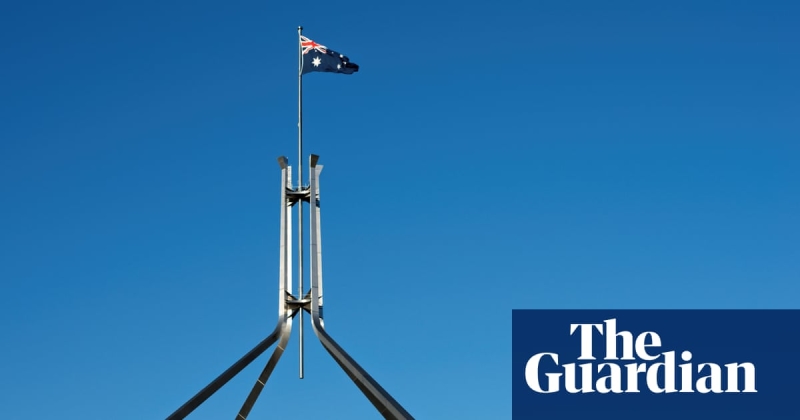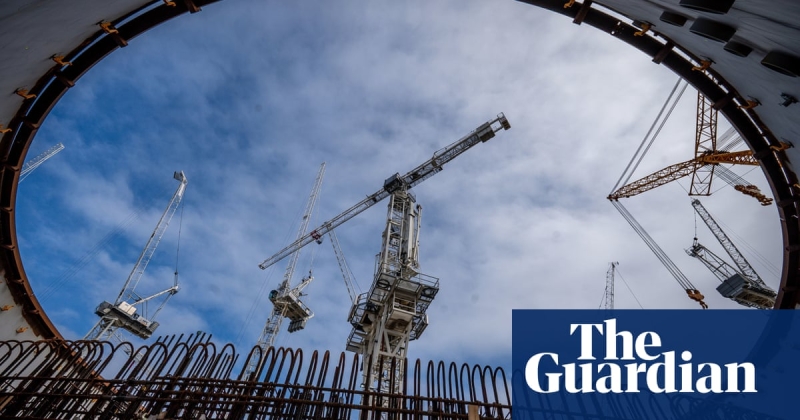Survey also finds 40% of people say antisemitism is a major issue in Australia, while 48% say it is a minor issue
Voters see Peter Dutton as more in touch with ordinary Australians, more decisive and better in a crisis than Anthony Albanese, with the opposition leader’s standing improving on key leadership indicators in the latest Guardian Essential poll.
Parliament returns on Tuesday for potentially the last sitting fortnight before the federal election (which must be held by mid-May). Questions about the Labor government’s response to antisemitism and the alleged caravan bomb discovered in Sydney are expected to dominate the political agenda.
It comes as Australians express split opinions about how Albanese has responded to the antisemitism issue, with 43% of voters thinking the government has not done enough and 39% believing it has done enough or too much.
The latest Essential poll of 1,150 Australians, which was conducted last week, found Dutton enjoying an improved perception among some voters – though both leaders were in negative territory on some questions.
63% of voters thought Albanese was out of touch with ordinary Australians, compared to 55% that thought the same of Dutton.
The prime minister’s score on that metric has markedly deteriorated since coming to power, with only 47% of Australians believing he was out of touch in March 2022, shortly before he led Labor to a May election victory.
Dutton’s score has gradually improved over time, with 61% of people believing he was out of touch in March 2023, and 59% in July 2024.
More than half of voters (52%) believe Albanese doesn’t handle pressure well, while only 40% thought the same of Dutton.
The opposition leader also led the prime minister on questions of decisiveness (56% compared to 43%), while 64% of people agreed that Albanese changes his opinion depending on who he thinks is listening. About 55% thought the same for Dutton.
The biggest gulf between the two men was on whether voters perceived them as aggressive. Just 27% of voters described Albanese as aggressive, while 49% said the same of Dutton.
The early stages of 2025 have seen the two leaders become increasingly hostile to one another, levelling more personal and character attacks at their opponent. Dutton has regularly slammed Albanese as “weak”, indecisive, or soft on law and order issues; the prime minister and Labor have called the opposition leader “reckless” and “angry”.
Albanese accused Dutton of “cold-hearted, mean-spirited” politics, and chastised him as lacking toughness due to his reluctance to hold press conferences or major media appearances in front of the federal press gallery in Canberra. Both men have described the other as “divisive”.
Much of Dutton’s recent attacks on Labor and Albanese have stemmed from his criticism of the government’s response to antisemitic arson and graffiti attacks in Sydney and Melbourne.
The opposition is expected to use parliament’s question time this week to scrutinise how Labor responded to the discovery of a caravan in Dural containing explosives, with indications it could have been used in an antisemitic attack.
Dutton has been harshly critical of the federal government’s response. The Essential poll found mixed opinions.
43% of respondents believed the government was not doing enough to combat antisemitism in Australia, while 30% thought they were doing enough; 9% said the government was doing too much on the issue, while 18% were unsure.
Broadly, 40% of people thought antisemitism was a major issue in Australia, while 48% thought it was a minor issue, and 12% responded that it was “not an issue”.
Elsewhere in the poll, respondents were evenly split on whether they were worried or not about a hung parliament after the next election. With Labor holding only a slim margin in the lower house, there is the chance of neither major party winning an outright majority.
Exactly 50% of respondents agreed that it was better to have a major party in government so they could enact their policies, while the other 50% said it was better to have minor parties and independents holding the balance of power because they would provide greater scrutiny on government policies.





